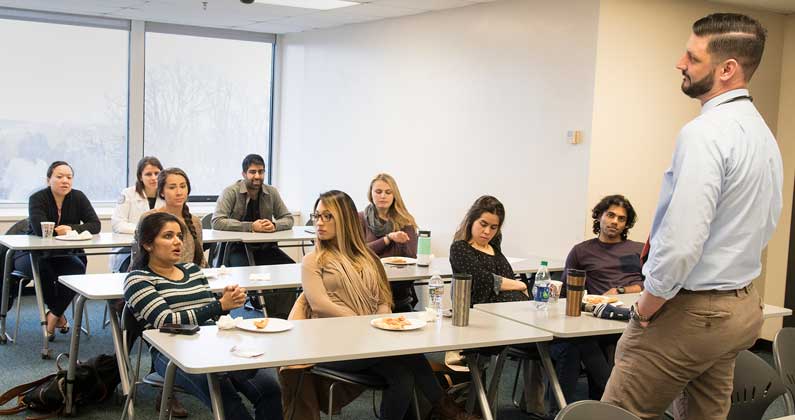Donald Allison, DO ’09, assistant professor, OMM
Joshua Baron, DO ’03, clinical assistant professor, emergency medicine
Michael Becker, DO ’87, MS, assistant dean of clerkship education and professor, family
medicine
Kristen Berry, DO ’00, instructor, family medicine
Peter Bidey, DO ’08, MEd, assistant professor, family medicine
Charmaine Chan, DO ’05, assistant professor, family medicine
Izola David, DO ’85, assistant professor, pediatrics
Larry Finkelstein, DO ’87, associate professor, family medicine
David Fuller, DO, professor, OMM
Katherine Galluzzi, DO, professor and chair, geriatrics
Joan Grzybowski, DO ’87, assistant professor, family medicine
Joseph Guagliardo, DO, professor, surgery
Michelle Hobson, DO ’80, clinical assistant professor, OMM
Joanne Kakaty-Monzo, DO ’97, clinical associate professor and academic chair, Ob/Gyn
David Kuo, DO ’96, associate dean, GME and associate professor, family medicine
Erik Langenau, DO, MS, chief academic technology officer and associate professor,
family medicine
Pat Lannutti, DO ’71, co-vice chair and professor, internal medicine
Michael Levin, DO ’01, chair, Division of Nephrology and clinical associate professor,
internal medicine
Harry Morris, DO ’78, MPH, professor and chair, family medicine
Marta Motel, DO ’88, assistant professor, family medicine
Laura Noto-Bell, DO ’06, associate professor, OMM
Daniel Parenti, DO ’87, professor and chair, internal medicine
Brian Penza, DO ’07, instructor, internal medicine
Erik Polan, DO ’07, assistant professor, internal medicine
Arthur Sesso, DO ’81, professor and chair, surgery
Madeline Sine-Karasick, DO, clinical assistant professor, radiology
Michael Srulevich, DO, MPH, associate professor, geriatrics
Michael Venditto, DO ’77, professor and chair, Division of Pulmonary and Critical
Care Medicine
 A new mentoring initiative in the DO program pairs students with faculty to assist
with personal and academic issues.
A new mentoring initiative in the DO program pairs students with faculty to assist
with personal and academic issues.